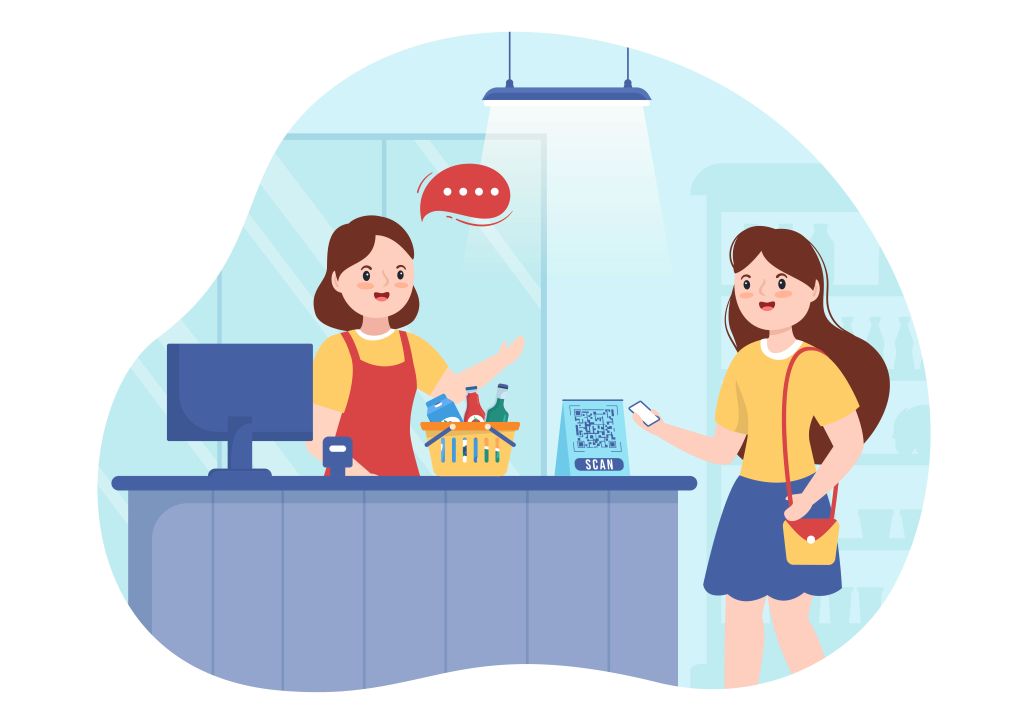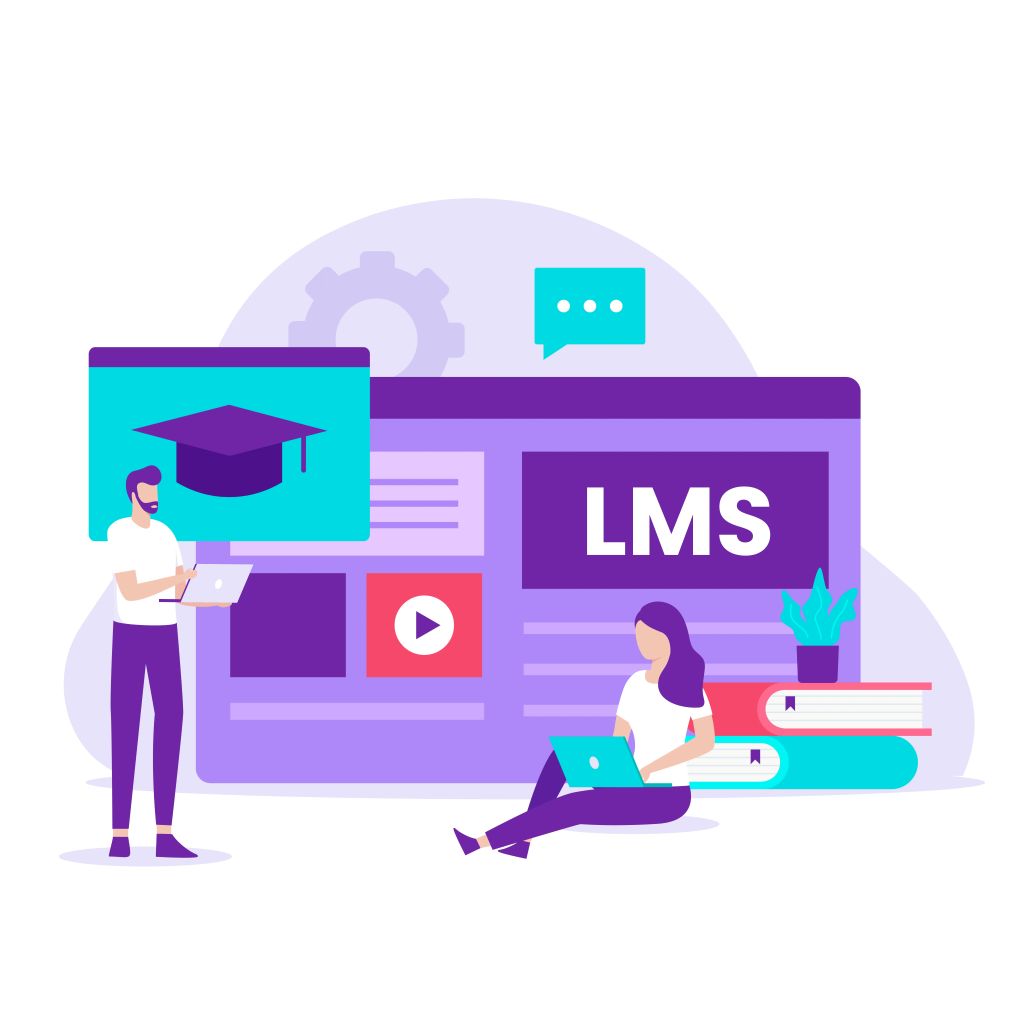In today’s competitive retail landscape, delivering exceptional retail customer service is no longer optional — it’s a necessity. Retailers face increasing pressure to meet high customer expectations, foster loyalty, and drive repeat business. However, achieving this consistently across all locations and employees can be challenging.Investing in structured retail training is key to empowering staff with the knowledge and skills they need to excel.
Modern LMS for retail training like Calibr provides a flexible, efficient, and scalable solution. By offering personalized learning paths, real-time analytics, and engaging methods such as gamification, an LMS ensures that customer service in retail stores is standardized and effective. Employees not only learn the essential techniques but also develop confidence in handling diverse customer interactions, which improves overall customer service in retail industry performance. Through targeted customer service training for retail employees, businesses can transform everyday interactions into memorable customer experiences, ultimately benefiting both the retail customer and the organization.
To explore how Calibr’s LMS can help your retail workforce deliver world-class customer service, learn more here or contact us today.

What is Retail Customer Service?
Retail customer service refers to the support and assistance provided by retail employees to shoppers before, during, and after a purchase. It includes helping customers find products, answering questions, resolving complaints, and creating a positive shopping experience. Exceptional retail customer service not only satisfies customers but also drives loyalty and repeat business.
Who is a Retail Customer?
A retail customer is any individual who purchases products or services from a retail store, whether in-person or online. These customers expect efficient, friendly, and knowledgeable assistance from retail employees to make their shopping experience smooth and enjoyable. Meeting these expectations is central to effective customer service in retail industry.
Top 5 LMS Approaches to Enhance Retail Customer Service

1. Personalized Learning Paths for Retail Employees
Traditional training programs often take a one-size-fits-all approach, which can leave many retail employees feeling underprepared for real-world customer interactions. With LMS for retail training, platforms like Calibr Learn offer personalized learning paths tailored to each employee’s role, experience level, and learning style.
This customization ensures that service delivery is not generic but tailored to the skills each employee needs. For example, a sales associate can focus on retail customer service skills such as product demonstration, upselling, or handling difficult customers, while a store manager can concentrate on team coaching, resolving escalated complaints, and mentoring new employees.
By addressing individual strengths and gaps, employees gain confidence and competence in every customer interaction. They not only learn what to do but how to do it effectively. Personalized learning also improves engagement because employees feel their growth is prioritized, resulting in better customer service in retail industry outcomes, increased employee retention, and stronger customer loyalty.
2. Mobile-Optimized Training for On-the-Go Learning
Retail employees often work irregular schedules and may not have access to traditional computers during shifts. Calibr's LMS for retail training addresses this challenge by offering mobile-optimized content that can be accessed anytime, anywhere, on smartphones or tablets.
This flexibility allows staff to complete learning modules during short breaks, commutes, or between customer interactions. Bite-sized lessons, or microlearning, help reinforce best practices in customer interactions without overwhelming staff. Employees can review scenarios for greeting retail customers, upselling products, handling complaints, or cross-selling services, all on the go.
Mobile learning also ensures consistency across multiple locations, so customer service in retail stores is standardized and high quality, no matter which location a customer visits. Retailers see improved employee engagement, higher knowledge retention, and a more prepared workforce capable of providing excellent retail customer service at all times.
3. Real-Time Analytics to Monitor Progress
One of the key advantages of modern LMS platforms like Calibr is the ability to track and analyze employee learning in real time. Managers can monitor the progress of retail employees, identify knowledge gaps, and optimize retail training programs to meet evolving business needs.
With actionable data, stores can determine whether employees are mastering core competencies of customer service training for retail employees, such as greeting retail customers, handling complaints, or demonstrating products. Analytics allow managers to assign targeted refresher courses to address areas where performance may be lacking, ensuring every employee maintains high standards of customer service across all stores
This approach not only enhances individual performance but also improves overall team effectiveness, leading to more satisfied retail customers and measurable business outcomes, including higher sales, better loyalty, and reduced employee turnover.
4. Gamification to Enhance Engagement
Learning is most effective when it is interactive, engaging, and fun. Platforms like Calibr integrates gamification elements such as points, badges, leaderboards, and interactive challenges to motivate retail employees.
Gamification reinforces essential service skills by encouraging employees to practice and repeat key tasks. For example, completing modules on greeting retail customers, upselling products, or resolving complaints can earn rewards, promoting healthy competition and retention. Employees become more confident applying what they learn, improving retail customer service performance in real-world scenarios.
Gamified training also fosters collaboration, where employees can learn from peers, share success stories, and encourage each other. This results in a more engaged workforce and measurable improvements in customer service in retail industry, leading to enhanced customer satisfaction and positive brand perception.
5. Scalable Training Across Multiple Locations
For retail chains with multiple stores, delivering consistent customer service in retail can be challenging. LMS platforms like Calibr make it possible to standardize retail training across all locations, ensuring that every retail employee receives the same high-quality education regardless of geography.
Updates to customer service training for retail employees can be deployed instantly across all branches, ensuring employees stay current with new policies, products, or service techniques. New hires and veteran employees alike can access the same content, guaranteeing uniformity in retail customer service standards.
This scalability allows retailers to maintain a consistent brand experience and build trust with retail customers. Standardized training improves service quality, reduces errors, and reinforces best practices, contributing to a stronger reputation for service excellence and long-term business success.
All these strategies become more effective when powered by the right LMS. Calibr is designed to help retailers put these ideas into action — from personalized learning paths to real-time analytics and engaging training methods. For more information on how better service translates directly into higher sales, read our full blog on LMS for Retail Sales Associates: Driving Sales & Service Excellence.
Ready to transform your retail customer service?
Sign up for a 14-day free trial or Contact us for more details
External Facts & Data: The Impact of Training on Retail Customer Service
Consumer Expectations: Approximately 64% of shoppers attribute "poorly trained or prepared staff" as a significant factor in deteriorating customer experiences. [Adobe for Business]
Training and Engagement: 92% of employees believe that the right kind of workplace training positively impacts their job engagement. [Devlin Peck]
Mobile Learning Efficiency: Employees utilizing mobile learning complete courses 45% faster than those using traditional desktop methods, without compromising on effectiveness [ shiftelearning]
Real-Time Analytics Adoption: Nearly 65% of organizations have adopted or are actively investigating AI technologies for data and analytics, enhancing decision-making processes [Coherent Solutions]
Conclusion
Investing in an LMS for retail training is a strategic decision that directly impacts the quality of retail customer service. By providing engaging, mobile-friendly, and personalized learning experiences, retailers can equip retail employees with the knowledge and skills required to excel in their roles. Effective customer service training for retail employees ensures that they know how to interact with customers confidently, creating a positive shopping experience that enhances loyalty and drives business growth.
With modern retail training solutions, businesses can standardize customer service in retail stores, monitor progress through real-time analytics, and continually refine learning content to meet evolving customer needs. As a result, customer service in retail industry improves consistently, enabling retail customers to enjoy seamless, satisfying interactions across all touchpoints. By leveraging the power of an LMS, retailers not only strengthen their workforce but also reinforce a culture of excellence in retail customer service, delivering measurable benefits for both employees and customers alike.
One such powerful platform is Calibr, designed to help retailers deliver engaging, scalable, and effective training programs.
Sign up for a 14-day free trial or Contact us and Schedule a demo to get started today


